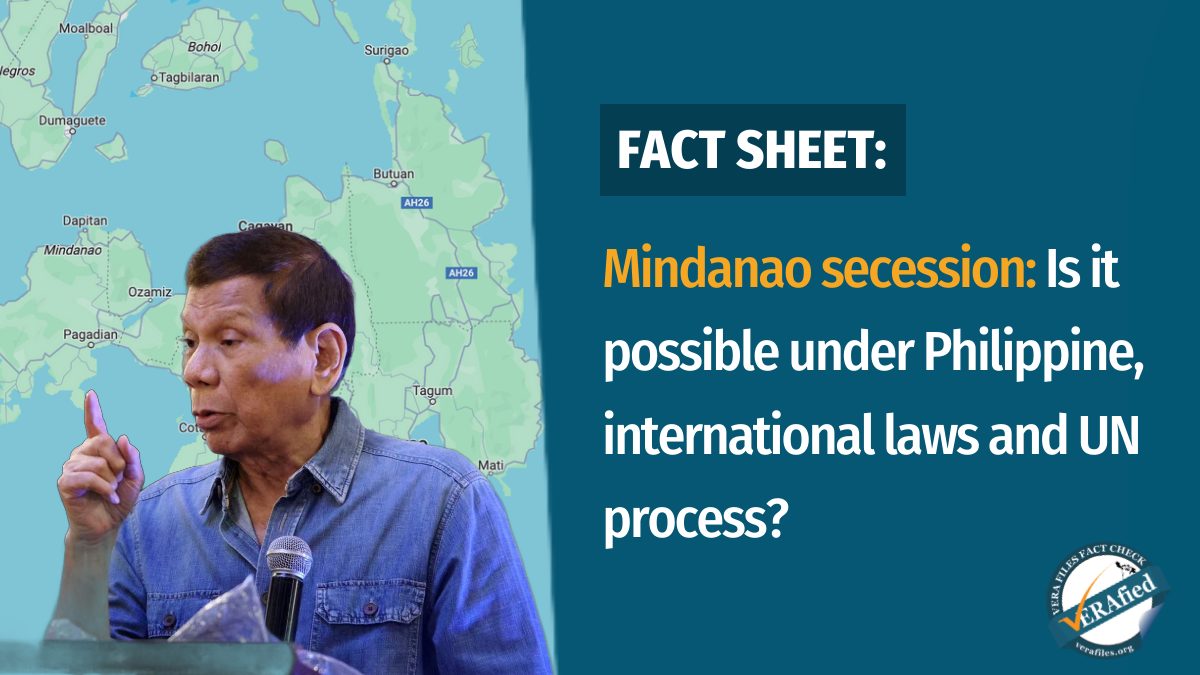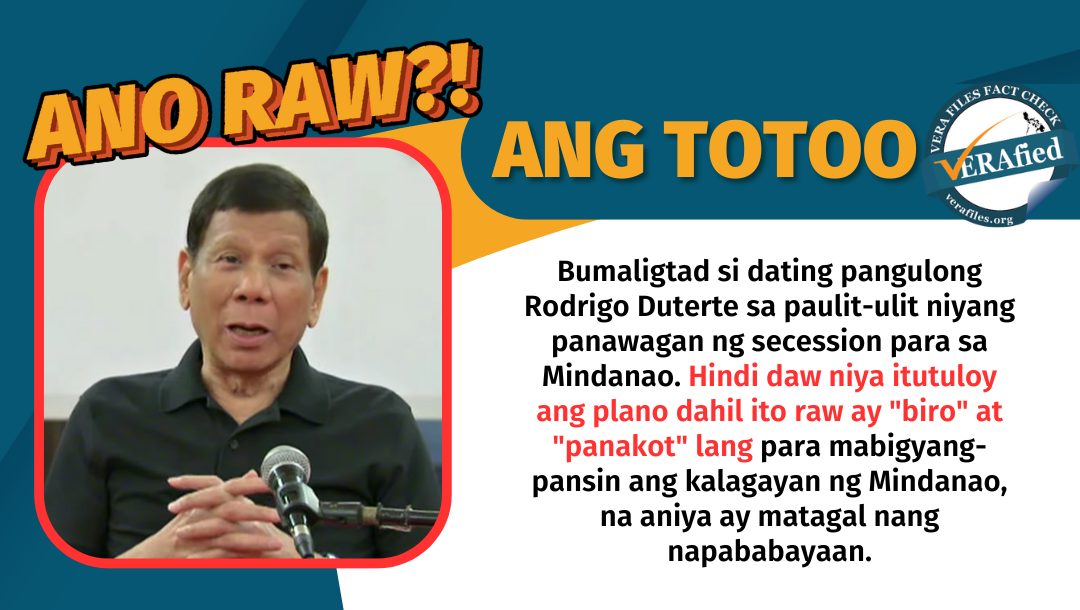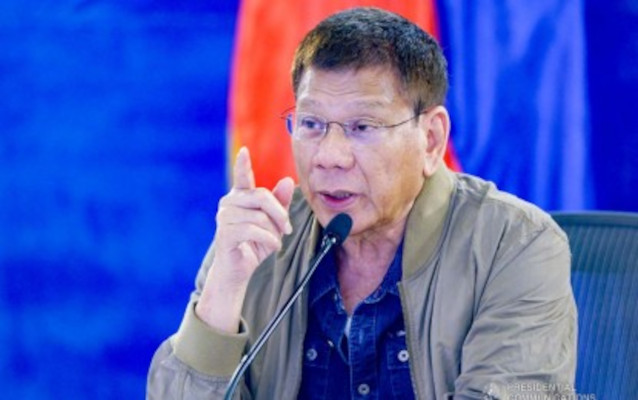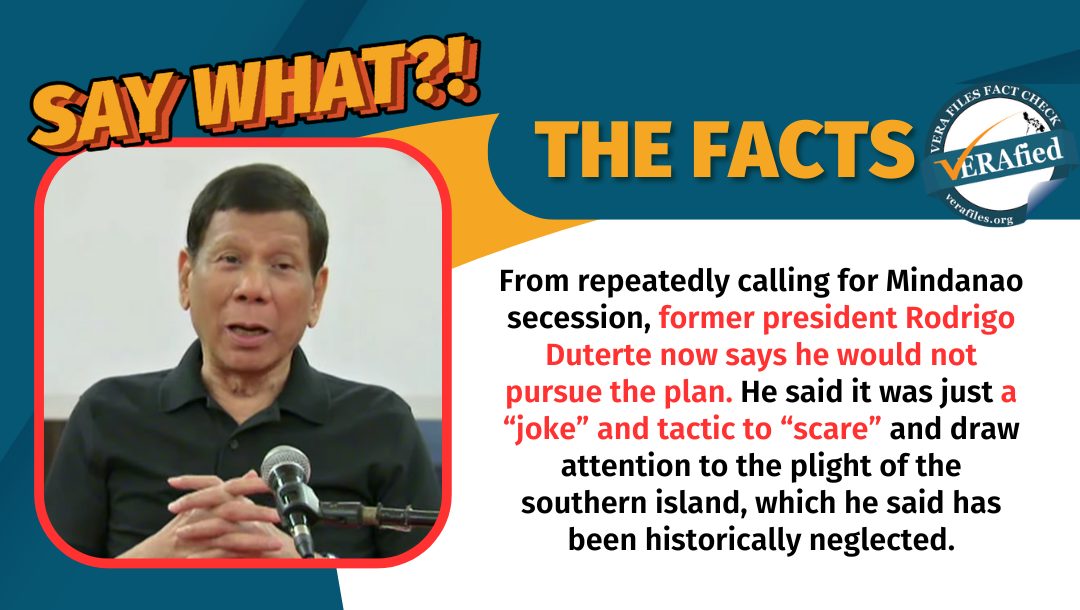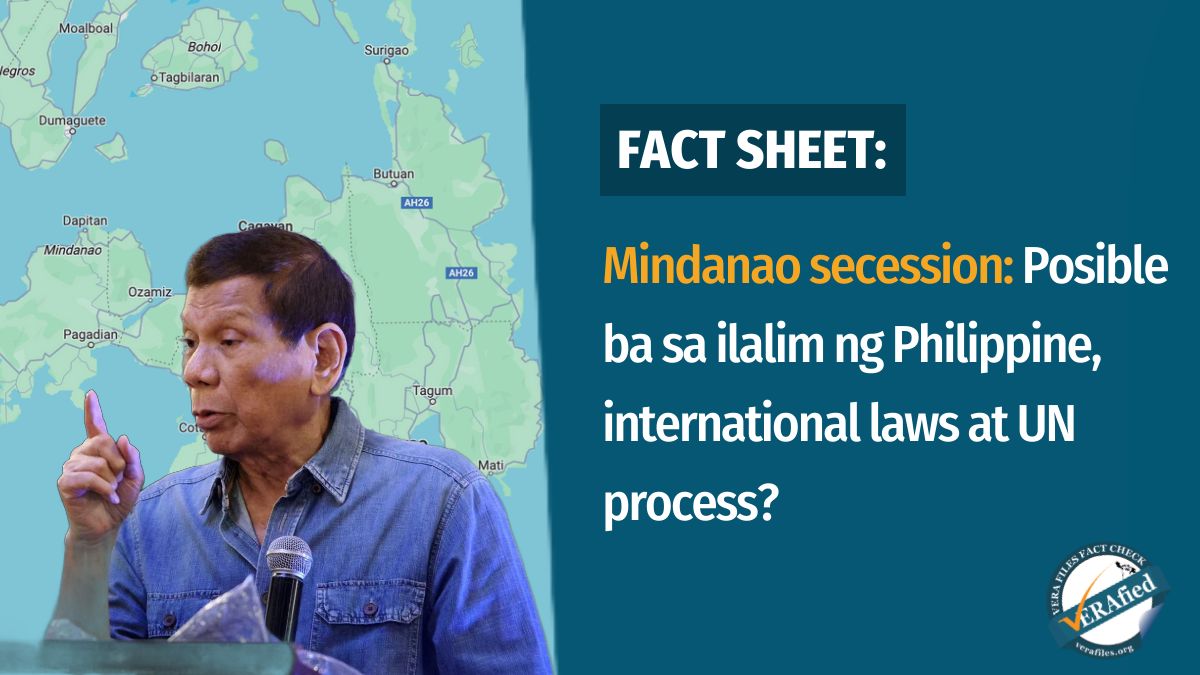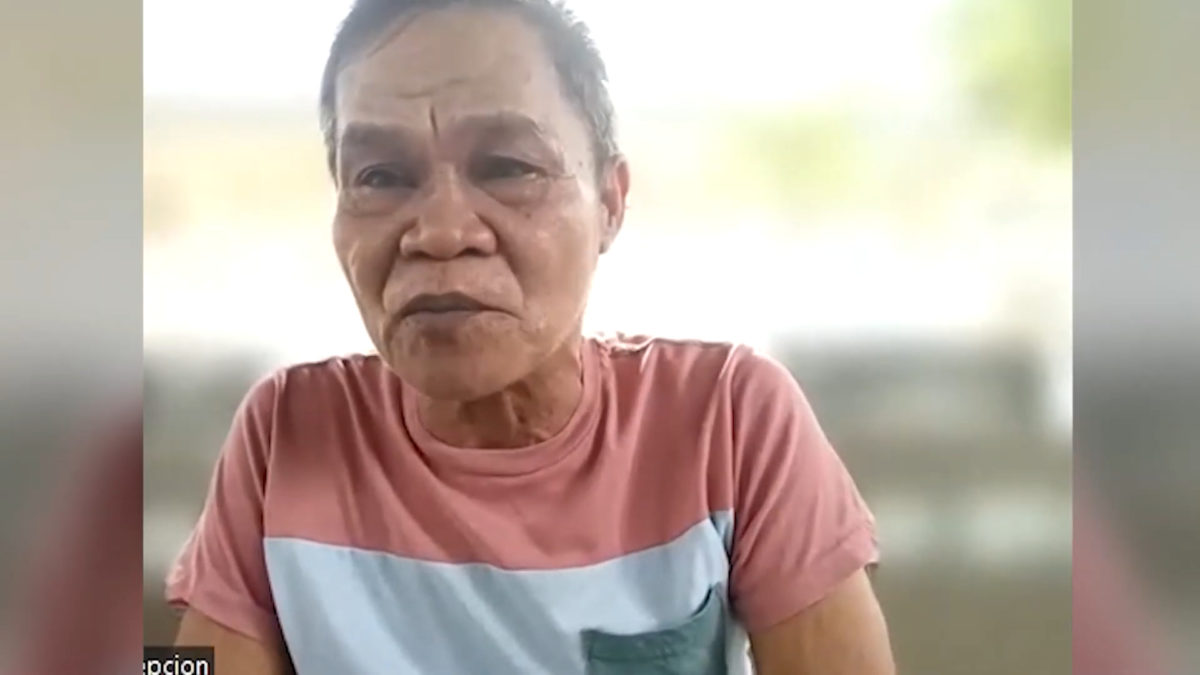In a media briefing on Jan. 30, former president Rodrigo Duterte raised the idea of Mindanao seceding from the Philippines, saying that local political forces would be regrouping in Davao to establish a movement for Mindanao independence.
“There’s a process in that, I think before the UN (United Nations), where you would gather signatures from all folks in Mindanao— magpirma (sign), verified, under oath, in the presence of so many people, decide that we want to separate,” he said.
In a later interview with former presidential adviser Salvador Panelo, Duterte added that the movement, which Davao Del Norte Rep. Pantaleon Alvarez would head, aims to achieve secession peacefully and legally like what Timor Leste did.
“There is such a thing as secession through peaceful means, that indeed you can secede from a country based solely on the right to free will, free determination ng tao (of the people),” he explained.
What do the laws say about secession and self-determination? Here is what you need to know:
-
Is secession legal in the Philippines?
Secession is the “unilateral withdrawal from a state of a constituent part, with its territory and its population,” according to the Oxford Public International Law. This split results in the continued existence of the original state and the emergence of a new one.
In an interview on TeleRadyo Serbisyo last Feb. 1, lawyer Domingo Cayosa, former president of the Integrated Bar of the Philippines, said secession is “practically impossible” to do in the Philippines because the protection of territorial integrity or the state’s right to defend its borders and territory is “clearly” stated in the Constitution.
“Even if, theoretically, itong sinasabi niya na magpapa-signature campaign sila. Kahit po ‘yung buong Mindanao mapapapirma nila… Sabihin natin (this signature campaign they’re talking about. Even if they’re able to get the whole Mindanao to sign… Let’s say…) it’s a legitimate people’s initiative effort [‘yan], you still need the cooperation of all the other provinces and districts of this country to get the pirma effort ongoing,” Cayosa explained.
He also cited a Supreme Court jurisprudence that said only minor changes are allowed through the people’s initiative, not substantial revisions such as a change of government.
Cayosa, however, clarified that this proposed signature campaign for Mindanao independence is not entirely illegal because it is a manifestation of the right to express one’s sentiments.
-
What does the international law say about secession?
In the same interview, Cayosa said secession in international law is currently a matter of “domestic determination.”
“Sa international law, ‘yung secession… is not even a clearly defined or uniformly recognized right. So, kahit dudulog sila do’n, ‘yung sinasabi nila may procedure sa UN, wala ho. Self-determination medyo kinikilala na ngayon, not secession,” he pointed out.
(In international law, secession is not even a clearly defined or uniformly recognized right. So, even if they bring this there through a so-called procedure in the UN, there is none. Self-determination may be recognized, but not secession.)
There are indeed no clear international laws on secession. While the international community recognizes self-determination or the right of the people to freely determine their political status and pursue economic, social and cultural development, it also recognizes that states have the right to self-preservation.
Antonello Tancredi, a professor of international law at the University of Palermo, explained in the book titled “Secession: International Law Perspectives” that international law does not prohibit or authorize secession. However, it “acknowledges the result of de facto processes which may lead to the birth of new states.”
-
Can secession be brought to the United Nations?
The UN had previously been involved in some secessionist states’ journey for independence and had recognized some as member states. However, it does not have an established process for secession as it also puts importance on territorial integrity.
According to Ed Brown in the book titled “United Nations: Friend or Foe of Self-Determination,” what the UN has are declarations and resolutions on self-determination that member states may use in recognizing seceded states.
Brown teaches at the University of Leicester and his doctorate was focused on secession from failed states and issues surrounding it. In his analysis, he noted that there is an ambiguity in the position of the UN on secession and any eventual recognition of a seceded state that allows the organization to act “pragmatically” in cases where secession may ease a conflict but not set a precedent that may “undermine the international system of states.”
Duterte and supporters of Mindanao secession have constantly referenced Timor Leste, Singapore and Kosovo’s journey toward independence. However, the UN’s role in their secession was limited to peacekeeping and recognition of new member states.
This role was also observed by Brown in two secessionist states—South Sudan and Somaliland. While these were similar in the context of their separation from their parent states, that is their governments’ failure to provide them security resulting in direct oppression and persecution, Somaliland is still not recognized by the UN.
Brown argued this is because Somaliland’s case might not pose a major international security concern that would warrant UN mediation in negotiations, which could then lead to recognition and membership.
“This shows that when self-determination through secession from failed states is condoned in the UN, it is linked to the UN’s role as a peacemaker,” Brown said.
